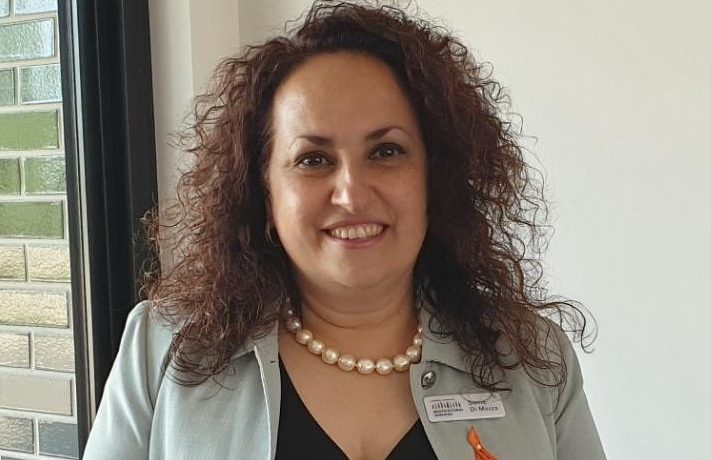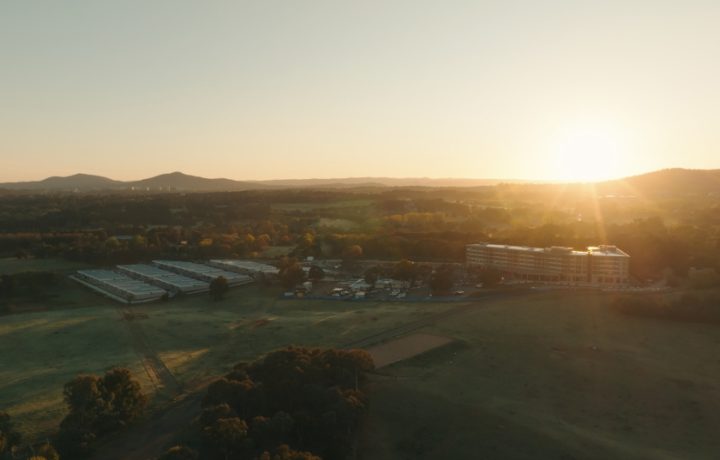How I Got Here: Sonia Di Mezza, Interim CEO of MARSS

Posted on
Admit it, we’ve all been there—stalking social media and LinkedIn profiles, trying desperately to figure out how the hell someone got their dream job.
It seems impossible and yet there they are, living out your career fantasy (minus the itchy business suit). It might seem hard to believe, but once upon a time, they were also fantasising about their future career, and with some hard work, they made it.
Welcome to How I Got Here, HerCanberra’s series that reveals everything you want to know about the secrets of career success. Here Sonia Di Mezza, the new Interim CEO of the Migrant and Refugee Settlement Services (MARSS), shares how she has spent her 25-year career helping people exercise their human rights.
Existential crisis time: Who are you and what do you do?
I am a culturally and linguistically diverse woman and a human rights lawyer. I have spent my 25-year career to date, supporting people to exercise their human rights, in Canberra, Australia, and internationally. I am passionate about what I do.
Let’s go back to when you were a kid, have you always dreamed of working in this industry?
I didn’t imagine as a kid that this was the career I would pursue. I knew that I wanted to make a difference in the lives of other people but didn’t know what that would look like. When I was in year 12, I knew I wanted to be a lawyer and worked hard to gain admission into law school, but I had no idea regarding what kind of law I wanted to practice.
Tell us about when you were first starting out, what set a fire in your belly to get here and how did you do it?
About 25 years ago, I worked as a refugee lawyer, representing asylum seekers in Villawood Detention Centre, in Sydney. Representing those clients was a real honour and a privilege. What set a fire in my belly was seeing how difficult it was for people who were detained for prolonged periods of time, just because they sought to seek asylum in this country. Learning about the difficulties and persecution many have suffered in their countries of origin helped to nurture a sense of social justice, including wanting to help my clients to secure asylum and refugee status in this country.
Recall a time when you wanted to chuck it all in; what did you tell yourself when it got too hard?
I remember when I worked for one of the major accounting firms straight out of law school. It was the wrong cultural fit and I didn’t want to continue to pursue a career in accounting, It just wasn’t the right industry for me. When I felt discouraged, I decided to give it a go for a year and then see where I wanted to go, which I did. That year working in the accounting firm would prove to be very useful. Managing projects in humanitarian contexts required an understanding of finances, budgets, and accounting, so all of these skills I had developed were later put to good use.
What was your biggest break?
A year after working at the accounting firm, I saw a job ad for a refugee lawyer working in South West Sydney. Something sparked an interest when I saw that ad and I decided to apply. It was a huge change, moving from an ivory tower of an accounting firm in Sydney to a small migration practice located in the outer suburbs of Sydney. Changing jobs was a pivotal point in my career,
What’s the best piece of advice you’ve ever received?
Follow the model of Ikigai: do what you are good at, what you love doing, what makes a positive impact in the world, and what you can make money doing. I’ve followed Ikigai ever since I learned about it, and it is just as relevant today in my life as it was when I learned about it many years ago.
What is it about your industry that you love and what makes you want to pull your hair out?
I love the community sector, doing work that makes a positive difference in people’s lives is so important to me: this sector delivers that objective in spades.
As a CEO working in the community sector, constantly having to chase funds to keep operations going can be exhausting and frustrating, but it’s part and parcel of the job so you have to get used to it.
Tell us how you ‘stay in the know’, what media do you consume?
I use social media, such as Facebook and LinkedIn to promote the work that our organisation does and to learn about what other thought leaders, advocates and organisations are doing. I get my daily dose of news from the ABC, BBC, Canberra Times and SBS.
Where do you see yourself in five years?
I see myself as a CEO continuing to lead a human rights focused NGO. I have found my dream job and I hope to be doing it for many more years in the future.
Why should people follow in your footsteps?
I have received texts from many young people, particularly women, asking for guidance and advice on how they pursue work focused on human rights, the community sector or makes a different in the lives of others. I highly recommend my work as a CEO, but it is not for everyone. It is a powerful leadership journey to undertake but involves ongoing hard work and commitment. I would encourage people to follow in my footsteps if they are prepared to work hard and have a leadership dream that they want to pursue. Leadership is not for everyone.
What advice would you give your past self?
Never give up, keep believing in yourself and what makes you passionate. Never make apologies for who you are, you are exactly who you were meant to be. Never regret the mistakes along the way, they are part of the lessons you will learn. You will get to where you want to go, at the end of the day.

